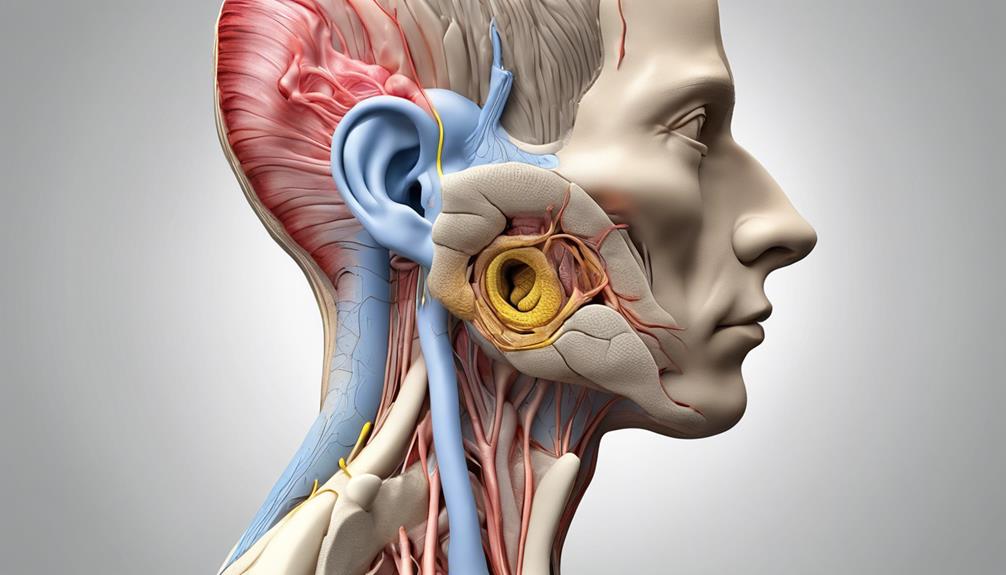When interpreting genetic panels for syndromic deafness, it’s important to understand that results can be complex. You might find uncertain variants or mutations whose significance isn’t clear, and not all genetic factors are covered. A genetic counselor or specialist can help explain these findings, discuss possible implications, and guide next steps. By exploring the details further, you’ll gain a clearer picture of what the results mean for your diagnosis and future plans.
Key Takeaways
- Variants of uncertain significance may be found, requiring careful interpretation by specialists.
- Negative results do not exclude a genetic cause due to testing limitations and incomplete gene coverage.
- Incidental findings unrelated to deafness might be discovered, raising ethical and counseling considerations.
- Proper interpretation depends on understanding test scope, limitations, and the clinical context.
- Genetic counseling is essential to set realistic expectations and help manage emotional and medical implications.

Genetic panels have become a essential tool in diagnosing syndromic deafness, offering a targeted approach to identify the underlying genetic causes. These panels analyze multiple genes simultaneously, helping you pinpoint specific mutations responsible for the condition. However, while genetic testing provides valuable insights, it’s important to recognize its limitations. Not all genetic factors contributing to syndromic deafness are currently understood or included in standard panels. Some mutations may go undetected, especially if they’re rare or occur in regions of the genome not covered by the test. This means that a negative result doesn’t necessarily rule out genetic causes, which can be frustrating if you’re seeking definitive answers.
Genetic panels have limitations; negative results don’t always rule out genetic causes of syndromic deafness.
Moreover, interpreting the results requires careful consideration. Variants of uncertain significance—those genetic changes whose impact on health isn’t clearly established—pose a particular challenge. You might receive a report indicating a mutation that’s not definitively linked to your condition, leaving you with questions rather than clarity. This emphasizes the importance of consulting with a genetic counselor or a specialist who can help contextualize the findings, explain their relevance, and guide your next steps.
In addition to the technical limitations, ethical considerations in genetic screening are central to the process. You’re faced with questions about consent, privacy, and potential implications for family members. It’s essential that you’re fully informed about what the testing entails, including the possibility of uncovering incidental findings unrelated to deafness but with health implications. Respecting your autonomy means making informed decisions about whether to proceed with testing and understanding how your genetic information will be stored and shared.
Privacy concerns also come into play. Genetic data is sensitive, and you need to trust that laboratories will handle your information responsibly, adhering to strict confidentiality protocols. Furthermore, the results can have emotional impacts, influencing how you view yourself and your family. Ethical considerations extend to the potential for discrimination or stigmatization based on genetic findings, making it essential to have access to appropriate counseling and support.
Additionally, understanding the current scope of genetic panels helps set realistic expectations about what can be discovered, given the ongoing research and evolving technologies in the field. Ultimately, while genetic panels are powerful tools, they aren’t foolproof. Their limitations and the ethical context surrounding genetic screening underscore the importance of comprehensive counseling and careful interpretation. You should approach genetic testing as one piece of a broader diagnostic puzzle, ensuring you’re well-informed and supported throughout the process.
Frequently Asked Questions
How Often Do Genetic Panels for Syndromic Deafness Miss Mutations?
You might wonder how often genetic panels miss mutations. False negatives can occur due to testing limitations, such as incomplete gene coverage or undetected structural variants. These panels don’t always identify every mutation, especially rare or novel ones. So, while they’re quite useful, they aren’t foolproof. It’s important to remember that testing limitations mean some mutations could be missed, emphasizing the need for thorough assessment and sometimes additional testing.
Can Environmental Factors Influence Genetic Testing Outcomes?
Environmental influences can impact testing accuracy by affecting gene expression or causing epigenetic changes, which might lead to false negatives or ambiguous results. You should be aware that external factors like exposure to toxins or infections could alter DNA or its markers, potentially complicating interpretation. While genetic testing primarily detects inherited mutations, environmental influences might subtly impact the outcomes, underscoring the importance of considering both genetics and environment for holistic assessments.
Are There Ethical Concerns With Genetic Testing for Syndromic Deafness?
You should consider the ethical concerns of genetic testing for syndromic deafness, especially around informed consent and privacy. You need to ensure that individuals understand the potential outcomes and implications of testing. Protecting their privacy is vital, as genetic information is sensitive. Being transparent and respectful helps prevent misuse of data and supports ethical practices, giving individuals control over their genetic information and choices.
How Cost-Effective Are These Genetic Panels for Patients?
Cost considerations can clarify whether genetic panels for syndromic deafness are worth it. You should conduct a thorough cost analysis, weighing the expenses against potential benefits like early diagnosis and tailored treatment. Insurance coverage varies, influencing affordability and accessibility. While some plans may cover testing, others might not, so you need to clarify coverage options beforehand to determine if the diagnostic dollars deliver value for your health investment.
What Are the Limitations of Current Genetic Panel Technologies?
You might face limitations with current genetic panel technologies due to technological constraints like incomplete gene coverage and limited detection of structural variants. Interpretation challenges also arise because of the complexity of genetic data, potential variants of uncertain significance, and difficulty distinguishing pathogenic mutations from benign ones. These factors can hinder accurate diagnosis and personalized treatment, emphasizing the need for ongoing advancements to improve reliability and thoroughness in genetic testing.
Conclusion
In steering genetic panels for syndromic deafness, you find clarity amid complexity. While the results can reveal vital insights, they also remind you of the limitations inherent in current knowledge. Just as a puzzle’s final piece completes the picture, accurate interpretation bridges the gap between genetic data and meaningful care. Ultimately, understanding these results empowers you to make informed decisions, transforming uncertainty into a pathway toward personalized treatment and hope.











